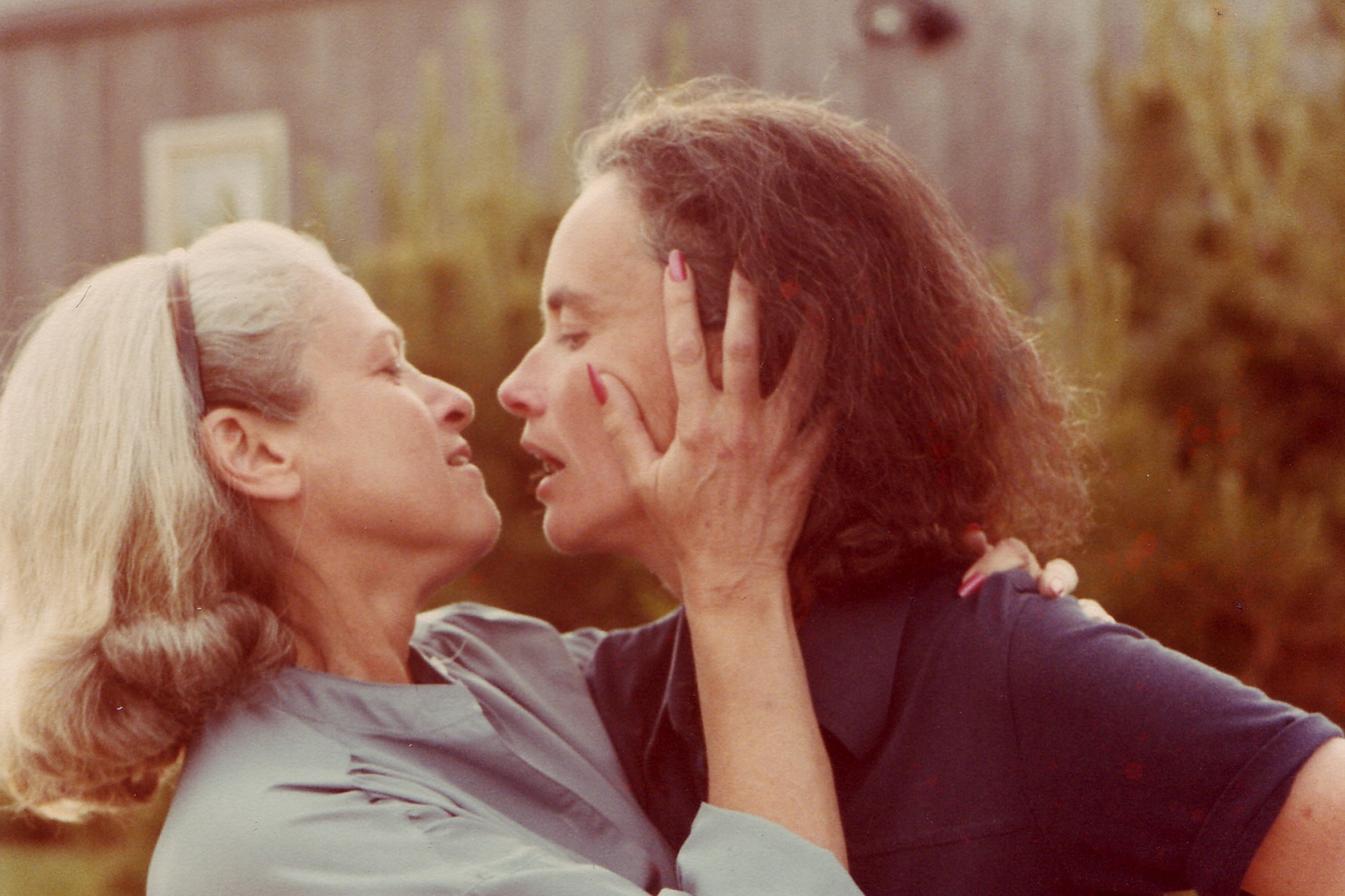
The Defense of Marriage Act
A law from the Dark Ages
by Megan Smith
With overwhelming approval from both houses, the legislation on President Bill Clinton’s desk the morning of September 21, 1996, was signed and, in the blink of an eye, became the law of the land. Relief set in throughout the Clinton administration—this new Defense of Marriage Act would not be an issue in the fall presidential election.
The act, better known as DOMA, set in stone that the federal government officially defined marriage as the union between one man and one woman. Section 3 of the law makes clear that no same-sex unions will be recognized for the purpose of federal laws, programs, or benefits—a total of 1,138 rights stripped away from gay and lesbian couples as of 2004. “I have long opposed governmental recognition of same-gender marriages, and this legislation is consistent with that position,” Clinton said upon signing. “The Act confirms the right of each state to determine its own policy with respect to same-gender marriage and clarifies for purposes of federal law the operative meaning of the terms ‘marriage’ and ‘spouse.’”
“I also want to make clear to all that the enactment of this legislation should not, despite the fierce and at times divisive rhetoric surrounding it, be understood to provide an excuse for discrimination, violence, or intimidation against any person on the basis of sexual orientation,” he later noted. “Discrimination, violence, and intimidation for that

reason, as well as others, violate the principle of equal protection under the law and have no place in American society.”
Although his words were laced with sincerity, little did President Clinton know that he was signing into law a piece of legislation comparable to that of sixteenth-century England.
Nearly five hundred years before DOMA, a quick swish of a quill pen marked another historical injustice. Just like that, King Henry VIII of England enacted the country’s first civil law against homosexuality—the Buggery Act of 1533.
The act outlawed “buggery,” or any “unnatural sexual act against God,” and made the offense, later clarified as sodomy, punishable by death. “And that the offenders being herof convict by verdict confession or outlawry shall suffer such pains of death and losses and penalties of their good chattels debts lands tenements and hereditaments as felons do according to the Common Laws of this Realme,” the law read.
The real rub didn’t lie with the punishment by death clause, but rather with the second half of the proclamation. According to the law, instead of having their estate passed down to their next of kin, the government would confiscate convicted sodomites’ possessions.
Although never explicitly stated, it is speculated that King Henry VIII never cared much about the crime of sodomy at all, since Germanic codes up to that point ignored all sexual activities except adultery. Rather, the potential for acquiring additional land seemed more of a delight to the king. He often used spies to gather information to convict clergy members, taking their monastery lands as a result.

Dirty motives in politics didn’t die with the end of the sixteenth century, pro-LGBT rights activists argued after DOMA was enacted. Senator Ted Kennedy, although he was a Democrat like Clinton, called the act “a mean-spirited form of legislative gay-bashing designed to inflame the public four months before the November election.”
The true intention of DOMA might have been hidden beneath Clinton’s cushy and comforting words about ending discrimination, but the House Judiciary Committee made things quite clear by stating that the act was “intended by Congress to reflect and honor a collective moral judgment and to express moral disapproval of homosexuality.”
More than a decade after its passage, an unlikely eighty-three-year-old former top IBM programmer and openly lesbian woman is standing up to the Supreme Court of the United States and saying, “No more.”
Divorcing her husband only a year after their wedding, Edith “Edie” Windsor moved to New York City to, as she says, “let myself be gay.” There, in a Greenwich Village restaurant, is where she met the love of her life, an impressive psychologist named Thea Spyer.
In 1967, during a drive in the countryside, Spyer proposed to Windsor with a diamond-encrusted circular brooch, so as to not spark questions from nosy coworkers and neighbors. Although Windsor said yes right away, the couple waited forty long years for the chance to be legally wed—an opportunity that almost never came about.
In 2007, Spyer’s multiple sclerosis, a disease she had been diagnosed with years before, grew ever more severe. Not wanting to wait around any longer, the couple traveled to Toronto to finally have the wedding they spent half a lifetime dreaming about. The two were joined in union by Canada’s first openly gay judge, Justice Harvey Brownstone, on May 22, 2007. “The fact is, marriage is this magic thing,” Windsor says. “I mean, forget all the financial stuff—marriage symbolizes commitment and love like nothing else in the world. And it’s known all over the world. I mean, wherever you go, if you’re married, that means something to people, and it meant a difference in feeling the next day.”
The warm, blissful feeling of marriage was unfortunately short-lived for the couple—replaced by the cold reality of the Defense of Marriage Act. Spyer passed away in 2009, at a time when the couple’s home state of New York recognized same-sex marriage. However, because of DOMA, their union was not recognized by the federal government. What resulted boiled down to that same centuries-old problem of estate inheritance rights.
Since, in the eyes of the law, Windsor was little more than a stranger to Spyer, she was ineligible to inherit unlimited tax-free property that all U.S. citizens can transfer to a spouse during life or after death, as long as that spouse is a U.S. citizen as well. As a result—as in the Buggery Act—the estate was not simply handed over to Windsor, Spyer’s closest kin. Rather, she was forced to pay over $363,000 in federal taxes on the inheritance of her wife’s estate. “If Thea was Theo, I would not have had to pay that,” Windsor explains. “It’s just a terrible injustice, and I don’t expect that from my country. I think it’s a mistake that has to get corrected.”
And trying to correct it, she is. Windsor has taken her case all the way to the U.S. Supreme Court, in the soon-to-be historic United States v. Windsor. University of Texas Associate Professor of Sociology Mary Rose said in a panel discussion on DOMA that the main question before the court is, “Does a good-enough reason exist to have this law, or is it solely discriminatory?”
“The principle involved, on the part of people who don’t like same-sex marriage, is that by people of the same sex marrying each other, we will endanger the marriages of people who are not of the same sex,” Carla Petievich, a UT visiting professor of Asian Studies said in the panel presented to UT students, faculty, and the Austin public this April. “But when DOMA passed, of course, the people who pushed for this legislation said it’s a strong statement against the immorality of same-sex marriage.”
Although the final decision is in the hands of the Supreme Court, even the man behind the signature on the DOMA bill has changed his mind on the legislation. “Over the years, I was forced to confront the fact that people who oppose equal rights for gays in the marriage sphere are basically acting out of concern for their own identity, not out of respect for anyone else,” Clinton said earlier this year.
The United Kingdom Parliament repealed the Buggery Act in 1967. Now it’s up to the Supreme Court of the United States to do the same. Are we ready to move on from the Dark Ages?
For testimonials, possible outcomes, and more coverage on DOMA, visit ontheprecipiceofequality.blogspot.com.











Comments